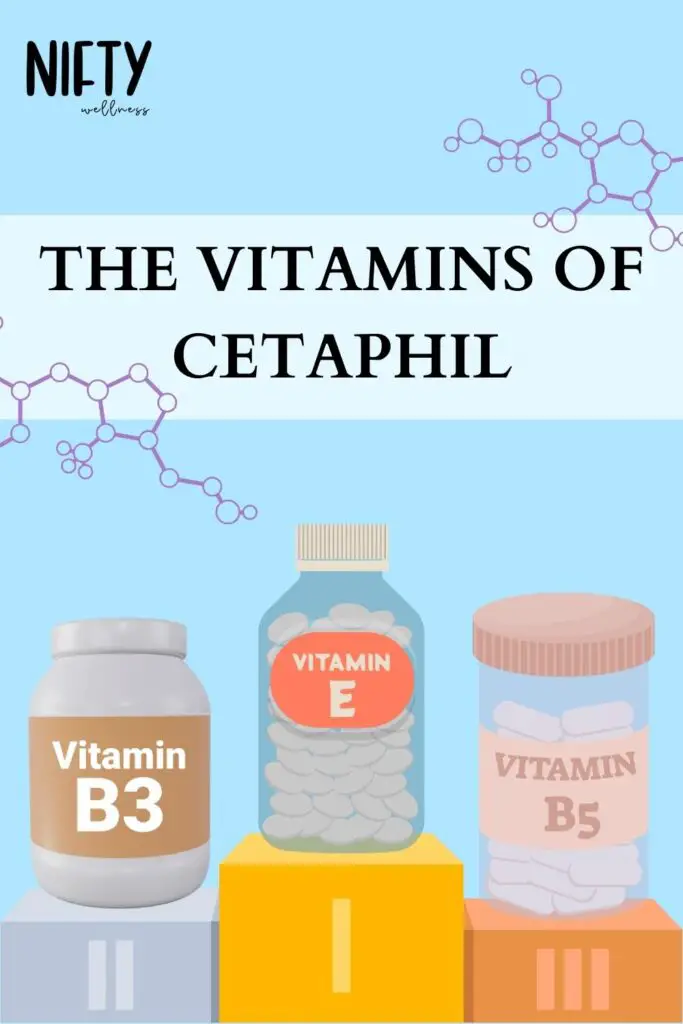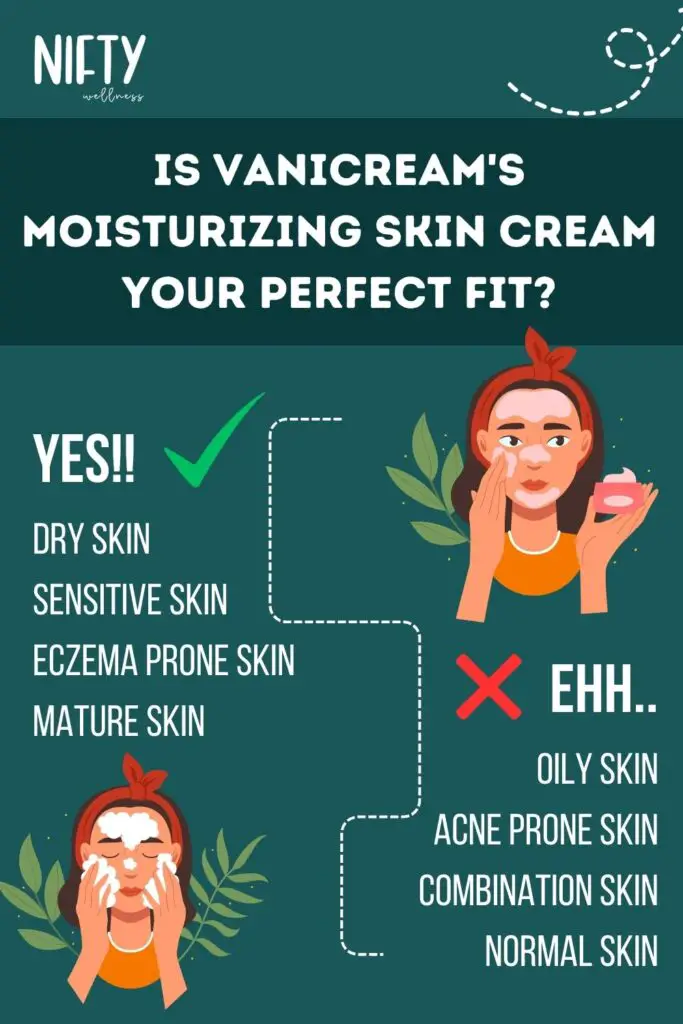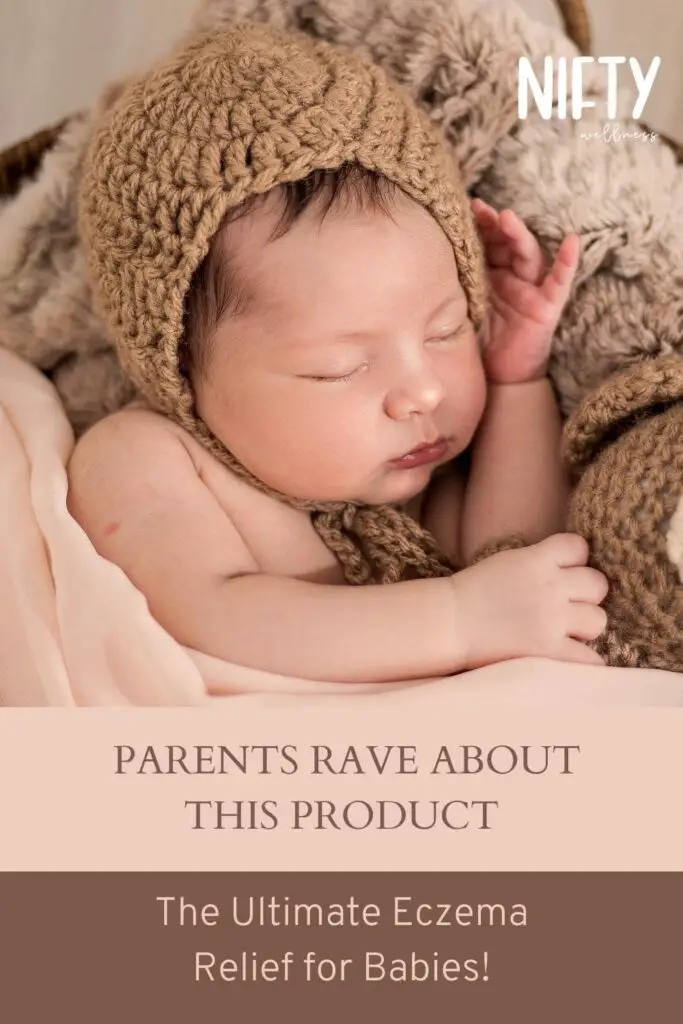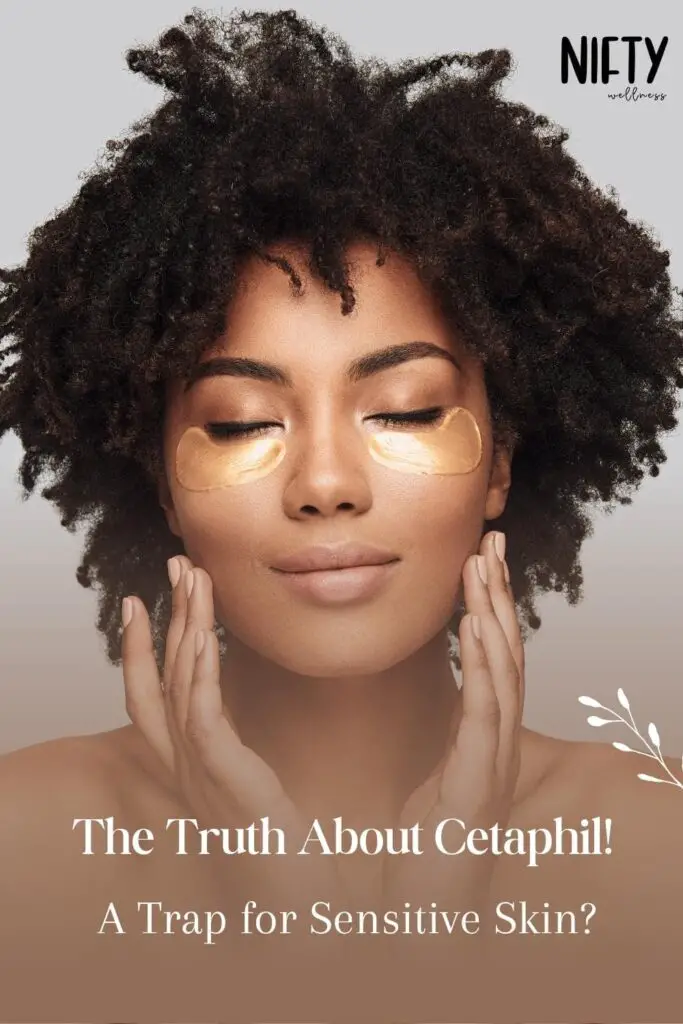With so many different skincare brands and products out there, it can be difficult to decide which products are best for you.
Finding the right products is especially difficult for people with sensitive skin. There are dozens of established, popular, trusted brands that offer similar products marketed towards people with sensitive skin.
Two such brands are Cetaphil and Vanicream. Both brands are well-known for catering to sensitive skin. So how do you decide which brand is right for you?
In this article, we’ve compiled some of the key similarities and differences between Cetaphil and Vanicream so you’ll be able to decide which one is right for you.
About Cetaphil
Cetaphil is a skincare brand known for its rich history dating back to 1947. Over the years, it has gained a reputation for creating gentle, dermatologist-recommended products. Cetaphil has become a trusted name in the skincare industry, offering solutions catering to various skin types. Their formulations are incredibly mild and suitable for sensitive skin, making them popular for those with different skin concerns.
About Vanicream
Emerging in the 1970s, Vanicream was developed by dermatologists who aimed to provide effective skincare solutions for individuals with sensitive and allergy-prone skin. Their product line is carefully crafted to be free of common irritants, fragrances, dyes, and other potential triggers for skin sensitivities. Vanicream has gained recognition for its commitment to creating gentle and well-tolerated products for sensitive skin.
Cetaphil & Vanicream In General

Both Cetaphil and Vanicream are well-established wallet-friendly brands trusted by consumers and dermatologists alike.
Both brands focus primarily on sensitive skincare, but they have slightly different approaches to skincare. Here is an overview of some of the key differences:
Cetaphil
- Cetaphil products focus on adding soothing and skin-supporting ingredients to their formulations, like niacinamide and vitamin E.
- Their products also provide several benefits for the skin, so you may be able to use fewer products to meet your skin goals.
- Longer ingredients lists and more complex formulations can be problematic for people with extremely sensitive skin or skin conditions like rosacea or eczema.
- Some products contain parabens and fragrances, which many people find to be irritating
- Offers a wide range of products for various skin concerns.
Vanicream
- Vanicream products contain minimal ingredients, so they’re less likely to be irritating.
- People with multiple skin concerns may need to supplement with additional skincare products, which may lead to a longer skincare routine.
- Vanicream products are meticulously crafted with minimal ingredients and a focus on purity, ideal for those seeking uncomplicated, gentle skincare solutions.
- All Vanicream products are paraben-free and fragrance-free.
- Offers a comparatively small range of products.
Cetaphil Vs Vanicream Facial Cleanser

Finding a cleanser that cleans your face without irritating your skin can feel like an uphill battle if you have sensitive skin.
Both Cetaphil and Vanicream offer award-winning gentle facial cleansers that are lauded as the best of the best when it comes to sensitive skin cleansing.
The Cetaphil Gentle Skin Cleanser is a non-foaming hydrating cleanser that many people report is very soothing. It’s fragrance-free, paraben-free, and hypoallergenic.
Many users report that this is their go-to cleanser for dry skin and conditions like folliculitis and cystic acne.
One potential drawback of this cleanser is it has a pH of 6.8. Our skin’s pH is typically between 4.8 and 5.5. Using a cleanser that isn’t pH balanced can cause irritation for some people.
The Vanicream Gentle Facial Cleanser is free of dyes, fragrance, paraben, gluten, and a handful of other common additives that may be of concern for people with sensitive skin.
This foaming cleanser is lauded as a go-to for those with eczema or rosacea and is highly recommended for people who are using harsh acne treatments.
It’s also pH-balanced, making it an ideal choice for people with extremely sensitive skin.
Discover the key differences between CeraVe and Cetaphil, two leading skincare giants in “The Ultimate Comparison: CeraVe vs Cetaphil – Unveiling the Best Skincare Choice“.
Cetaphil Vs Vanicream Lotion
Both Cetaphil and Vanicream offer lightweight facial lotions suitable for combination and oily skin. While these products make very similar claims, there are some key differences.
The Cetaphil Moisturizing Lotion contains several vitamins, like vitamins B3 and B5 (Niacinamide and panthenol) that reportedly help to make sensitive skin more resilient.

It contains avocado oil, but won’t clog pores. Despite its lightweight texture, many reviewers report that it works well for dry and oily skin alike.
The Vanicream Moisturizing Lotion (formerly known as the Lite Lotion) has a shorter, simpler ingredient list than the Cetaphil lotion. Vanicream Moisturizing Lotion is a soothing and hydrating solution formulated with minimal ingredients, making it suitable for sensitive and delicate skin. This fragrance-free and paraben-free lotion is designed to provide long-lasting moisture without common irritants.
Where the Cetaphil focuses on increasing skin resiliency, Vanicream’s lotion focuses on reducing immediate redness and irritation.
It’s received rave reviews from people with psoriasis, eczema, ichthyosis, or otherwise extremely sensitive skin.
Cetaphil Vs Vanicream Cream
Heavier creams are great for dry skin and body skincare. Cetaphil and Vanicream’s cream moisturizers are essentially thicker, more occlusive versions of their lotions.
Both of these creams are petrolatum-based, but they still have some key differences.
The Cetaphil Moisturizing Cream includes the same vitamin blend as the lotion. Cetaphil Moisturizing Cream is a dermatologist-recommended, non-greasy moisturizer that provides intensive hydration to dry and sensitive skin. It’s fragrance-free, making it suitable for delicate skin, and can be used on both the face and body to relieve dryness and promote smooth, healthy skin. It’s a thick, heavy cream, but many reviewers report that it’s non-greasy and absorbs well into the skin.
It’s a daily-use cream suitable for use on both the face and body.
The Vanicream Moisturizing Skin Cream is extremely thick. It’s thicker than the Cetaphil cream, meaning average consumers may find it far too thick for use on the face.
Some reviewers report that this cream leaves a slightly moist residue on the skin, which could become greasy if you don’t have extremely dry skin.
Most people will find it works best as a body cream, especially at night and in winter. However, people with psoriasis, eczema, or otherwise scaly or flakey skin have reviewed this cream highly for head-to-toe use.

Cetaphil vs Vanicream Ointment
Ointments are rising in popularity in the world of skincare. These products range from very heavy creams to Vaseline-like formulations that are extremely occlusive.
Meaning, they create a barrier on the skin that prevents water loss, keeping the skin hydrated and moisturized. These sorts of products are best used to spot-treat extremely dry, cracked skin and often make excellent lip balms.
Both the Cetaphil and Vanicream ointments are accepted by the National Eczema Association and are free of fragrances and parabens.
Both ointments are also lauded for their non-greasy feeling and excellent moisturization properties.
The key difference between these products is that the Cetaphil ointment is petrolatum-based, and the Vanicream ointment is primarily composed of hydrogenated polydecene.
Cetaphil’s Healing Ointment is 71.5% petrolatum, which is what Vaseline is made from. As such, this ointment is very occlusive, meaning it creates a layer on top of the skin, which is what you want to treat cracked skin.
The additional ingredients, like shea butter, help the ointment somewhat absorb into the skin. Some reviewers found this ointment to be non-greasy, but others reported the opposite.
Vanicream’s Moisturizing Ointment is primarily hydrogenated polydecene, an emollient that forms a non-occlusive film on the skin. Where occlusive sit on top of the skin, emollients penetrate the skin. It is particularly suitable for individuals with eczema and sensitive skin. This ointment gentle, hypoallergenic formula has made it a favourite among those seeking relief from various skin concerns.
As such, many reviews find that this ointment is less greasy than Cetaphil’s ointment. Some people even found it suitable to use as a lotion.
Cetaphil vs Vanicream for Acne
When you have sensitive skin and acne, it can be difficult to find products that can treat your acne without making it worse and damaging your skin.
Cetaphil and Vanicream are both trusted in sensitive skincare, but what about acne?
Cetaphil doesn’t have any products that are formulated specifically to treat acne, but dermatologists still recommend it as a great brand for acne defense.
The cleansers are generally cleansing enough to help keep skin clear of dirt and oil that can cause acne, but gentle enough to keep from further irritating existing acne.
Additionally, all of their products are non-comedogenic, meaning they won’t clog your pores. Also, many Cetaphil products contain Niacinamide, an ingredient well known for its oil and acne-controlling properties.
However, some severe acne sufferers report experiencing bad breakouts while using Cetaphil.
Like Cetaphil, Vanicream doesn’t have any products formulated to treat acne. And just like Cetaphil, dermatologists recommend it for use in anti-acne skincare routines.
Vanicream for acne is a top choice. It suits acne-prone and sensitive skin with gentle, irritant-free formulas, like the Vanicream Z-Bar Medicated Cleansing Bar and the Vanicream Moisturizing Cream. The 2% pyrithione zinc in the cleansing bar is effective against acne. The moisturizing cream hydrates without causing breakouts, making Vanicream perfect for those with acne.
Vanicream products are non-comedogenic and gentle enough to be used by people with extremely sensitive or compromised skin.
Vanicream products are particularly good choices for people who are using harsh acne treatments, as they are extremely unlikely to cause further irritation.
Check out our blog Cetaphil Vs Eucerin: Differences, Similarities & Which One Is Right For You. Dive into the details and make an informed decision for your skin’s well-being.
Cetaphil Vs Vanicream for Babies

When it comes to baby skincare, simplicity is key. Cetaphil and Vanicream understand this and provide parents with uncomplicated yet effective solutions. While they’re not ‘baby brands,’ both Cetaphil and Vanicream carry products that pediatricians, dermatologists, and parents alike love for babies.
Cetaphil’s Gentle Skin Cleanser is an excellent choice for babies. Unlike many cleansing products for babies, Cetaphil’s cleanser is fragrance-free. Additionally, it can be used as a soap and as a shampoo.
Most doctors recommend that parents don’t put lotions on their babies, as it can cause rashes.
However, for babies with skin conditions like eczema, dermatologists advise parents to reach for Vanicream’s Moisturizing Skin Cream.
Its minimal ingredient list is perfect for babies, and it’s effective in treating the dryness, redness, and irritation that comes along with eczema.
These brands provide parents with reliable options for keeping their baby’s delicate skin healthy and comfortable.
Summary

Both Cetaphil and Vanicream carry a myriad of products that offer benefits for people with sensitive skin. However, there are some key advantages and disadvantages of each brand to keep in mind.
Cetaphil products are typically aimed are making the skin more resilient by adding supportive vitamins and vitamin-rich oils. This allows the products to target multiple concerns at once.
However, people with extremely sensitive or compromised skin may find Cetaphil’s products to be a little bit irritating, especially if they are used in conjunction with any harsh treatments.
Vanicream products are aimed at soothing red, irritated skin and prevent additional irritation.
Their products have short ingredient lists that make them especially popular for people with skin conditions like rosacea or eczema or extremely sensitive skin.
However, people with multiple skin concerns will likely have to supplement their skincare routine with additional products to get the result they’re looking for.
Frequently Asked Questions (FAQs)
Can I use Cetaphil or Vanicream if I have extremely sensitive skin?
Certainly! Both Cetaphil and Vanicream are fantastic options for folks with super-sensitive skin. Dermatologists and pediatricians often suggest them for individuals with delicate or easily irritated skin. But, it’s a good idea to do a patch test before using any new skincare product to ensure it plays nice with your unique skin sensitivities.
Which Cetaphil cleanser is best for oily skin?
For oily skin, the Cetaphil Daily Facial Cleanser is generally recommended. This cleanser is designed to remove excess oil and impurities without overdrying the skin, making it a suitable choice for those with oily skin. However, individual preferences and skin reactions can vary, so it’s a good idea to consult a dermatologist for personalized skincare recommendations.
Do Vanicream products contain artificial fragrances?
No, Vanicream products are fragrance-free. They are formulated without artificial fragrances, making them a good choice for individuals with sensitive skin or those who prefer products without added scents. Vanicream prioritizes creating gentle and suitable products for sensitive skin, including avoiding artificial fragrances in their formulations.
Are Cetaphil products tested on animals?
Cetaphil is not considered a cruelty-free brand. While they claim not to perform animal testing on their products or ingredients during the development and manufacturing phases, they acknowledge that they may pay others to conduct such tests if mandated by law. This practice aligns with the industry standard, but it means Cetaphil is not cruelty-free, as they do not abstain from animal testing when required by legal regulations.
Can I use Vanicream moisturizers under makeup?
Absolutely, Vanicream moisturizers serve as an excellent base for makeup. They are particularly well-suited for individuals with sensitive skin and can create a smooth canvas for makeup application. Vanicream’s products are formulated to be non-comedogenic, meaning they won’t clog your pores or cause skin issues, making them a reliable choice to apply before your makeup routine.
